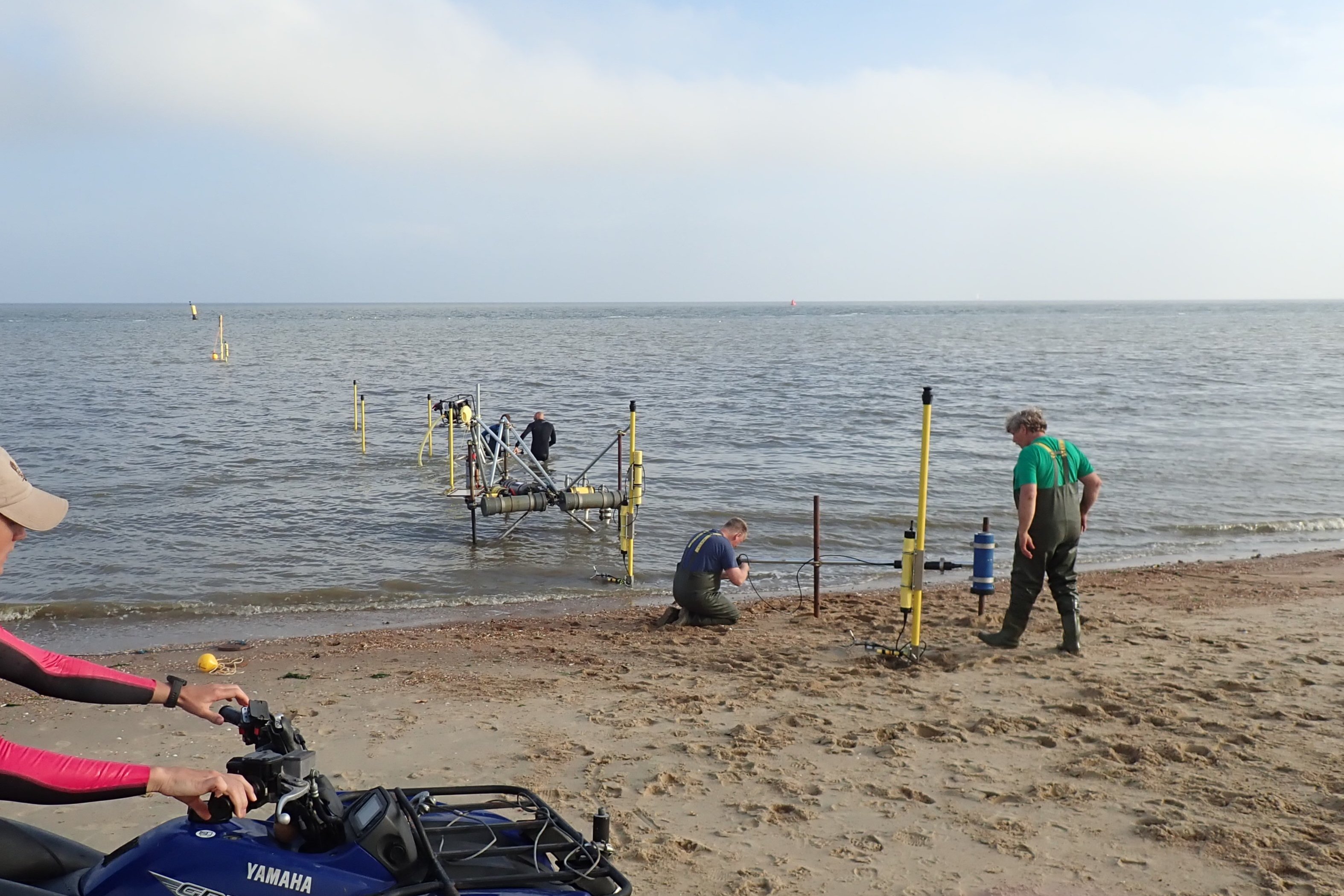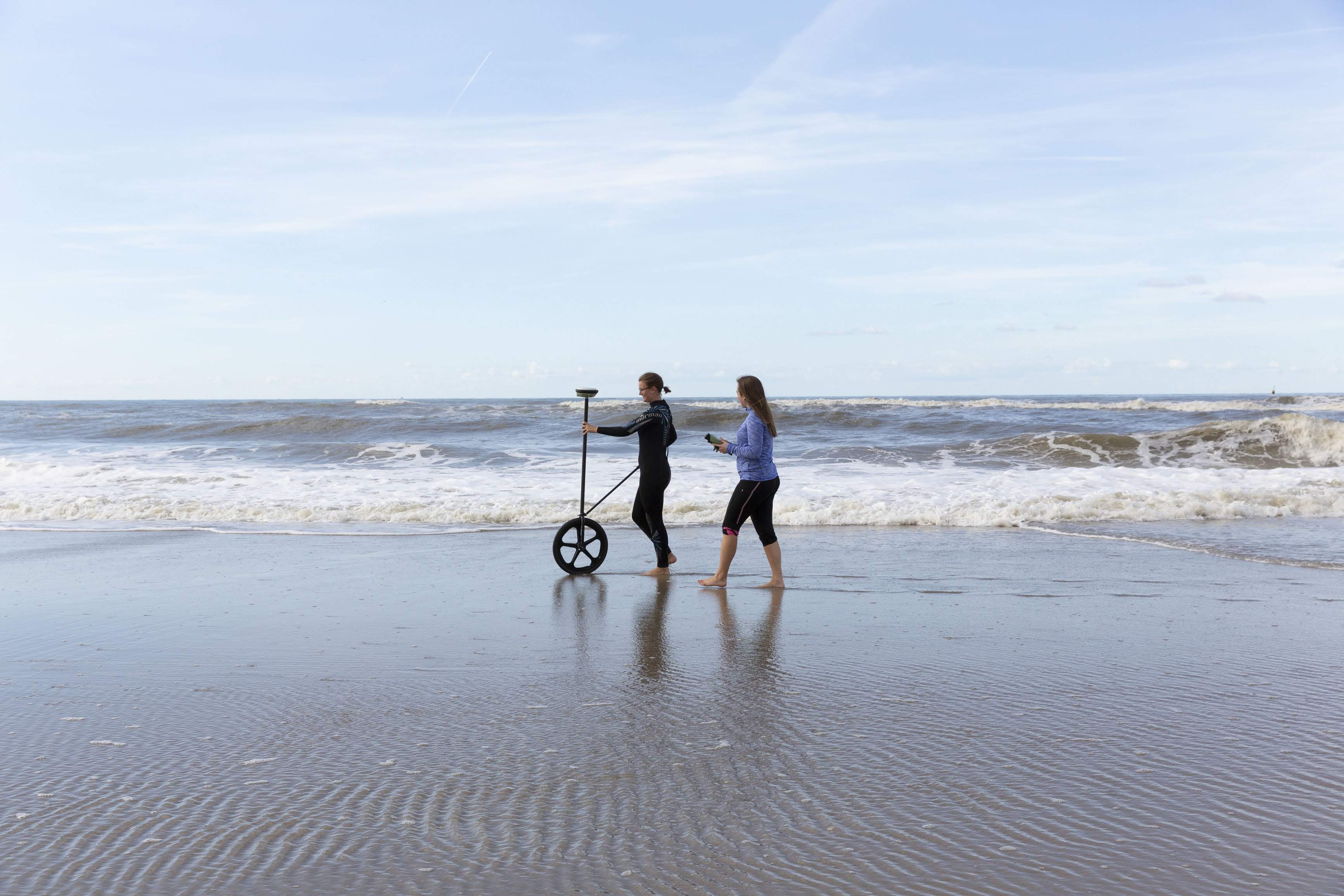Student 'Quick Reaction' Team erected for field measurements in extreme weather events
Extreme weather is becoming increasingly common. As field data of these conditions are rare, TU Delft's 'Delta Quick Reaction Student Squad' will soon be on stand-by to go out to the field when extreme weather occurs. The team will take measurements on rivers and coasts in stormy or extremely dry conditions. The wealth of open-source data generated by these campaigns are of great importance for research into the impact of climate change, and for keeping the delta liveable with appropriate measures.
Storm Ciarán, storm Pia, floods in the Limburg province; when alarm bells go off again, a team of students will be ready to immediately put on their boots and head into the field with measuring instruments. That is what researchers Matthieu de Schipper, Kieran Dunne and Bram van Prooijen will be aim for. The Hydraulic Engineering researchers received a Seed Fund from TU Delft's Climate Action Programme to prepare a first team of this so-called 'Delta Quick Reaction Student Squad'.
Measurements for climate adaptation
The students do not only take action when there is excess of water and flooding. Heat waves and extreme drought, such as in the summer of 2022, are also unique moments to monitor rivers, coasts and flood defences. Data on flow velocities, waves, sand erosion or sediment composition during these key moments are vital to better understand the system. Accurate monitoring is also valuable for evaluating the many ongoing pilot projects with innovative solutions to cope with water problems.
Success story
In 2021, during the flooding of the Geul river, a group of students and researchers from TU Delft went to Limburg to witness the disaster unfolding. They immediately rolled up their sleeves and collected a wealth of data to best describe the flood. A success story when we talk about super-fast response to extreme events. Unfortunately this is not always possible with regular manpower. With the Student Squad being created, this kind of ad hoc measurement campaigns should be realised more often.
Passion
The data collected by the students is crucial for understanding extreme events and their consequences. The data is also linked to long-term statistics and ongoing research. By doing so, the data become immediately usable for a large group of interested parties. With this, we can future-proof the Netherlands and other countries. The initiators are not just doing it for the wealth of data. "An important element is also that it allows us to ignite the passion for climate adaptation and hydraulic engineering in a group of students. It is great learning experience to go and observe our water system at these very moments," says Matthieu de Schipper.
Thanks to the seed fund, it is now possible to start working with student assistants on strategy, measurement protocols and safety plans. They hope that this summer, under fair-weather conditions, the first student team will be trained. Interested students can still apply via M.A.deSchipper@tudelft.nl.


